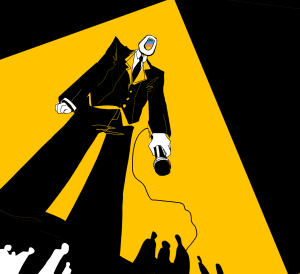Websites black out in protest of SOPA and PIPA
SOPA, or the Stop Online Piracy Act, and PIPA, the Protect IP Act, are pieces of legislation purposed to stop online trafficking of copyrighted property. Included in the act were proposals about barring advertising networks and payment facilities from conducting business with websites that infringed these copyright laws.
Search engines would be forced to no longer link to such websites, and Internet Service Providers would be required to block the sites. Additionally, those caught using the infringing websites would be penalized, with the possibility of up to five years in prison.
The act had support from the music industry, Hollywood, and the U.S. Chamber of Commerce. However, there was much opposition, including Wikipedia, which joined other popular websites such as Reddit and Boing Boing in a service blackout on Jan. 18 to raise awareness. Over 7,000 websites participated in the blackout.
In protest of the legislation, Wikipedia blocked all of its English-language pages for 24 hours from midnight Jan. 18 to midnight Jan. 19. This was the first time Wikipedia has restricted access in protest since 2001. The decision was made by over 1800 Wikipedia users, who overwhelmingly voted in favor of the blackout. Wikipedia also supplied information about the two pieces of legislation and encouraged their viewers to contact their representatives.
On another hand, Twitter, while not participating in the blackout, voiced its opinion in the form of tweets. Twitter’s chief executive, Dick Costolo, noted that they would attempt to use their open forum to encourage discussion about SOPA and PIPA.
Imagur’s photo gallery also showed information about the acts and a message about how the legislation would threaten similar websites. Information on what actions could be taken was also provided.
Google did not choose to participate in the blackout, but it did post a statement voicing opposition to both piracy acts, and the Google logo on the homepage was obscured by a black box.
On Jan. 20, House and Senate leaders announced that the action on PIPA and SOPA, which was supposed to take place on Jan. 24, would be delayed.
Northeast Ohio rocked by New Year’s Eve earthquake
On Saturday, Dec. 31, a 4.0 magnitude earthquake struck northeast Ohio. The earthquake struck McDonald, Ohio and its surrounding areas, with a center about five miles northwest of Youngstown and about six miles southeast of Warren.
Tremors were felt in Columbiana County and into western Pennsylvania, and were accompanied by a loud boom that scared nearby residents. However, no personal injuries or serious property damages were reported.
Similar earthquakes have rocked not only Ohio, but also Oklahoma. According to geological experts, these earthquakes have been linked directly to deep wells that are used to dispose liquid waste for hydraulic fracturing of natural gas, a process known as “fracking.”
Though fracking has allowed the U.S. to decrease its dependence on foreign oil and coal, and has helped cut energy prices, it appears that it is not entirely safe. The frequency of earthquakes is expected to increase as fracking continues.
Since the earthquakes began in March, this New Year’s Eve quake was the 11th to occur in the Youngstown region in 2011, even though Youngstown is not seismically active. The other earthquakes typically were of magnitude 2.7 or less.
According to MSNBC, John Armbrster, a seismologist on a team of investigators from Columbia University’s Lamont-Doherty Earth Observatory, said that the wells create pressure, which triggers earthquakes that are already primed to occur.
However, during a teleconference with news media on Jan. 1, Ohio Department of Natural Resources director Jim Zehringer said that the fracking did not directly cause the earthquakes and federal regulators declared the technology to be safe.
Michael Hansen of the Ohio Seismic Network said that more earthquakes are possible; however, they will most likely be small. They should stop altogether once the pressure at the corresponding fault line has been released.
















